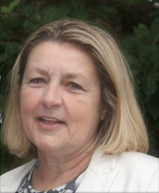
London is fortunate to have green areas covering nearly a third of the capital. Some capital cities have nothing near that amount. The challenge is to encourage management of these green spaces in a way that embraces the needs of a range of pollinators.
Pollinating London Together (PLT) is a charity that was created with the vision to help enhance green spaces within London by promoting habitats where native pollinators can thrive. With a longer term vision to create a template for change and action through leadership that can be implemented in urban environments across the UK.
PLT aims to champion and enhance pollinator friendly green spaces – starting in the City of London - allowing all pollinators including bees, butterflies, moths, beetles and bugs to flourish. Urban green space with its ecological diversity, is one of the most important places for pollinators because of the variety of food sources and potential nesting sites as well as helping with climate change, biodiversity and wellbeing. Insects are in severe decline but such an important part of our ecosystem and essential to enable food production - it is estimated that 1 in 3 bites of food we eat depend on pollinators. The global economy is 100% dependent on nature and natural resources and we know that nature has been historically mis-valued and its economic benefits distributed unevenly and insects have been in dramatic decline due to habitat loss and the use of pesticides.
PLT’s Objectives
PLT’s activities are designed to address three specific objectives:
- To redress the decline in pollinators in urban environments by promoting action to increase pollinator-friendly planting and habitats in the City of London and its immediate environs
- To raise awareness of the human benefits of pollinators and pollinator-friendly planting across the wider population of residents, workers, and organisations in the City of London
- To inform and encourage companies, organisations, and individuals to make meaningful decisions to make this happen.
Through this partnership we have become involved in wider groups such as the DEFRA Pollinator Action Strategy Group and Historic Royal Palaces Moat advisory group for the Tower of London.
We also engage with schools and educational days within the City of London and surrounding areas to extend the understanding and knowledge of the importance of bio-diversity and pollinators.
By enhancing biodiversity networks across the City it helps to improve green spaces for pollinators. Pollinators do not recognise political boundaries and we therefore plan to link the city with surrounding areas.
For further information please visit our website at: www.pollinatinglondontogether.com
 Dr Heather Barrett-Mold OBE
Dr Heather Barrett-Mold OBE
Heather is Vice/Co Chair of the Pollinating London Together Charity which she co founded in 2020, and leads the science and education work. The main objective is to prevent the decline of pollinators initially in the City of London and beyond and help greenspace managers to improve habitats with pollinator friendly planting and space for nesting.
Heather is a Past Master of the Gardeners Livery Company, and founder member of the Livery Climate Action Group.
Heather is a Chartered Scientist, Chartered Horticulturist, Chartered Environmentalist and Chartered Biologist. She was Principal/CEO of Pershore Group of Colleges and responsible for a 600 acre mixed farm and fruit production and cider unit. She was a member of the Government Advisory Panel on Sustainable Development Education for its lifetime of 5 years, and then Advisor on the Secretary of State Sounding Board. Heather was an expert with the Commission for Sustainable London 2012; a body engaged with delivering a sustainable Olympic Park. She was until recently Vice Chair of Governors at Capel Manor College. She has been a Secretary of State Board member for the Chilterns Area of Outstanding Natural Beauty. She is a Fellow of the Linnaean Society, Vice President of the Institution of Environmental Science, Past President of the Institute of Horticulture, and previous Chair of the Science Council.
Refreshments from 6:45pm, event starts at 7:00pm.
The presentation will be followed by an opportunity for informal discussion and conversation over a buffet supper. A donation of £2 per person is requested as a contribution to costs.
Members, non-members and guests are most welcome.